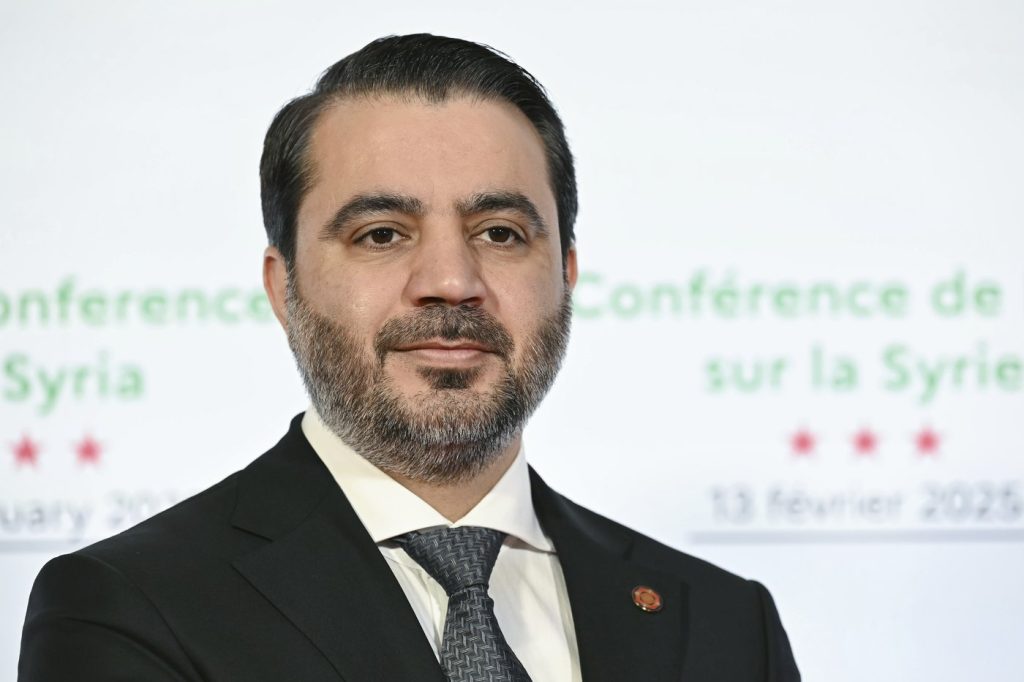BEIRUT (AP) – On Friday, Syrian Foreign Minister Asaad al-Shibani is scheduled to raise the country’s new flag at the United Nations headquarters in New York, marking his first public appearance as a senior official since the ousting of former President Bashar Assad in December. Al-Shibani will also attend a U.N. Security Council briefing, emphasizing the political shift occurring within Syria.
The new flag features three stars, which previously symbolized opposition groups, and has replaced the two-starred flag associated with the Assad regime. This change indicates a significant transformation in the Syrian government under the new authorities in Damascus, which are eager to engage with Washington for relief from the severe sanctions that were imposed following Assad's violent suppression of protests in 2011, which ultimately led to a protracted civil war.
A delegation of Syrian officials, including al-Shibani, traveled to the United States this week to participate in World Bank and International Monetary Fund meetings in Washington, as well as U.N. discussions in New York. However, it remains uncertain whether officials from the Trump administration will engage directly with al-Shibani during this visit.
The Trump administration has yet to formally recognize the current Syrian government, which is led by Ahmad al-Sharaa, an Islamist former insurgent whose forces played a pivotal role in toppling Assad. Although there have been some temporary alleviations in sanctions, the fundamental restrictions imposed by the U.S. remain intact, particularly concerning the militant group led by al-Sharaa, Hayat Tahrir al-Sham, which is still designated as a terrorist organization.
Recently, two members of the U.S. Congress, Representative Marlin Stutzman of Indiana and Representative Cory Mills of Florida, visited Damascus for an unofficial tour organized by a Syrian-American nonprofit. During this visit, they met with al-Sharaa and other government representatives. Mills indicated that the decision to lift sanctions ultimately falls to the President, while Congress may offer advice on the matter.
In his discussions with al-Sharaa, Mills highlighted several conditions that the U.S. has set for any potential sanctions relief. These include ensuring the destruction of chemical weapons left from the Assad era, coordinating efforts against terrorism, formulating a strategy to address foreign militants who supported the opposition, and providing assurances to Israel that Syria would not pose a security threat.
Mills also noted that al-Sharaa expressed a willingness for Syria to normalize relations with Israel "under the right conditions," although he did not elaborate on what those conditions might entail.
In contrast to the U.S. stance, other Western nations appear to be more rapidly establishing relations with the new Syrian authorities. Recently, the British government lifted sanctions against twelve Syrian entities, which include various government departments and media outlets. Additionally, the European Union has begun to ease its sanctions as well.
This diplomatic shift reflects a changing landscape in international relations regarding Syria and the broader implications for the region. As the new Syrian government seeks to build ties and gain recognition, the future trajectory of its international relations remains to be seen, especially in the context of ongoing negotiations and discussions surrounding sanctions and security concerns.











